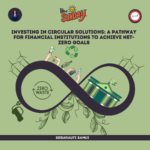There hasn’t been any industry that COVID-19 hasn’t impacted and one of the most impacted sectors in the economy was the Oil and Gas Industry. The Oil Price fell to an all-time low of negative $37.63 on the WTI (West Texas Intermediate) index in April 2020, there was an excess of supply and for that time, there was no need to produce any more oil. All OPEC and OPEC+ countries together decided to reduce their production of Oil and Gas by about 10 million barrels per day. This decrease in production revisited a question in the minds of many in the energy sector… Have we reached Peak Oil?
What is Peak Oil?
Peak Oil is defined as the moment at which the global oil production will reach its maximum rate after which it will gradually decline. This happens as the rate of extracting new reserves becomes more expensive. This puts a strain on the existing resources which are being rapidly exploited and will be depleted if new sources are not found faster than the rate of depletion of current resources. So, the fear of Oil getting completely depleted was genuine, thus sparking a deluge of multiple experts trying to predict. This was a major concern till new technologies were developed and there was a strong need to develop renewable sources of energy due to the rise in the realization of the Global Warming phenomenon in the late 1970s.

Fig 1: Hubbert’s Peak Oil Model
Peak Oil Demand
It was always assumed that the ‘supply’ of oil would eventually come to an end. Due to scarcity, the oil prices would increase, making Oil Expensive. In the past 40 years or so for every 1 barrel of oil consumed, 2 new were discovered and could be recovered at an economic rate. In recent research by Industry experts, it was found that the oil required for the world till the year 2050 was available twice over and due to abundance in technology, this value will increase multifold. This tells us that the world will not fall short on Oil any time soon and there might never be a shortage of oil as earlier predicted. It also means that most of the identified recoverable sources of oil may never be recovered. Due to the world moving towards renewable sources of energy, the dependence on conventional sources like oil, gas, and coal is reducing as you read this.
The world is still dependent on conventional sources like Oil, Gas, and Coal to achieve its energy requirements, however, there is now a shift towards more renewable sources of energy and now it is evident that the demand for Oil will gradually decrease. The moment in time when the demand for oil reaches its maximum and then starts reducing, it is called Peak Oil Demand.

Fig 2: Projections for Peak Oil Demand
The next question which comes to mind is When will Peak Oil supply occur?
Analysis has been done and potential dates ranging from 2028-2040 have been estimated. The range is very large and there are many factors that are responsible for the determination of Peak Oil Demand. Due to the new Environmental Protocols and with the proper observance of these regulations and promises, this date can take place even earlier. The world is already preparing for peak oil demand in terms of energy, but we are yet to understand the economic impacts of this phenomenon.
Impact on the Oil Market
With this shift in recognition from apparent scarcity to proven abundance, the behavior of oil-producing economies will change. It will cause the Oil market to become even more competitive than it is now. The Oil market hasn’t been behaving normally over the past decade as high-cost producers are able to compete with low-cost producers even if the high-cost oil has a multifold price difference as compared to low-cost oil. By the law of competitive markets, these high-cost producers should have been shut down or should have been driven out of the market.
This has not happened as the low-cost producers have rationed their resources to be able to produce over the next 100 years. This made sense in a scarce market, however, since the market has now shifted to being abundant this method of rationing will not work. In an abundant market, the low-cost producers will now try to force out the high-cost producers from the market. In such a market, the money in the bank is more valuable than the oil in the ground. This means that the low-cost producers would have to utilize the “high-volume, lower price” model to stay relevant in the market, this model heavily benefits the consumers. For the high cost to somehow survive in this highly competitive market they would have to give very lucrative contracts so that they can continue this business.
Both these models have problems, for the low-cost model, there is an operational problem as it becomes difficult for any producer to suddenly up their production even by 50%. Whereas for the high-cost producers there is a risk of their resources being depreciated in exchange for their contracts due to the lower price of oil.
Economic forces and dynamics take a lot of time to take effect, so for this situation to become a market norm it will take some time to become more competitive and will face significant challenges before these forces have their full effect.
Conclusion
Peak Oil Demand is a huge rage in the energy sector. The fact that the demand for oil will eventually reduce is not going to change. Rather than finding the date of the peak, the shift in paradigm needs to be shown more concern. The world will still need large quantities of oil at least for the next few decades.
The shift from an era of perceived scarcity to an age of abundance will result in a highly competitive market environment. This will result in oil-producing countries starting diversifying in order to survive in a world without Oil. The rate of this diversification as well as how much it is diversified will impact the oil prices in the coming few decades. However, it is unlikely that these changes will ever cause the major oil producing economies to have heavy fiscal deficits and the average price of oil will depend more on the social cost rather than the technical cost of production
.Peak Oil Demand is an interesting phenomenon and will result in the change of the energy sector in the coming few years. The decrease in the demand for oil will not only change the way energy is consumed but also be a factor for change for the better.
Author
Abishek Jeremy Lobo
Editor, TJEF














Leave a comment